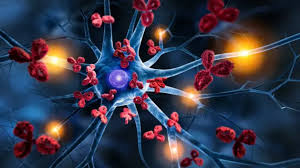Cell-based assay methodologies play a transformative role in advancing vaccine development and immunological research. These assays have established the importance of cellular models in providing physiologically relevant data about therapeutic responses and immune mechanisms. Cell-based assays are physiological methods for evaluating immunological mechanisms, vaccine efficacy, and immune response using live cell systems.
Cell-based assays have several types, such as cell proliferation assays, cell-based functional assays, and cell-based screening assays, each having a unique application. For example, the cell proliferation assay, a crucial cell-based approach, helps assess immune cell expansion and lymphocyte activation in response to antigenic stimulation and vaccine candidates through quantitative cellular assessment. The current article discusses cell-based methodologies, applications, and approaches that drive vaccine development and immunological research.
Fundamentals of cell-based assays
Cell-based Assays determine cellular processes, such as viability, proliferation, regulatory networks, apoptosis, and functional cellular aspects such as cytokine secretion and phosphorylation. Researchers can employ cell-based assays to interrogate entire cellular pathways and measure individual steps for a functional readout. Multiple cell-based assays are available for studying intracellular cytokine signaling and evaluating phosphorylation events.
Cell growth, division, and replication occur in a controlled series of events through the cell cycle. Specific B and T lymphocytes undergo clinical expansion in adaptive immunity in response to foreign antigenic stimulation. Researchers can effectively employ immunohistochemistry, immunofluorescence, or flow cytometry to determine cell cycle status and response against that specific stimulus.
As cells grow and divide, the number of cells increases. Cell proliferation assays focus on this increase in cell count. The relationship between cell proliferation and apoptosis is critical for normal tissue homeostasis and development. Multiple stimuli, for example, receptor cross-linking of cytokine treatment, can affect cell proliferation.
Specific morphological characteristics define cellular apoptosis. These features include condensation of the nucleus and cytoplasm, changes in the plasma membrane, internucleosomal DNA cleavage, and protein cleavage. In the ending stages, dying cells are fragmented into apoptotic pieces that are eliminated by phagocytic cells. Apoptosis detection assays measure diverse indicators of multiple stages in the apoptotic process.
Cell migration relates to cellular movement in response to external stimuli, including mechanical and chemical signals. During cellular invasion, cells can control their environment as they move through the extracellular matrix. Cell invasion and migration can be studied in vitro via membrane-based migration systems. Cell invasion and migration kits are often employed in cancer studies to evaluate the invasiveness and motility of cells in response to chemoattractant gradients.
Angiogenesis refers to blood vessel formation from existing vasculature. This process is controlled by chemical signals. Scientists often employ angiogenesis assays to study the inhibition and induction of angiogenesis in in vitro cellular models. Notably, cell-based assay development and validation for drug discovery can accelerate cancer treatment and other angiogenesis-dependent diseases.
Must Read: Why ADA Assay is Critical for Immunogenicity Testing in Biotherapeutics
Cell-based assays for immunological research and vaccine development
Cell-based assays are cornerstone technologies for immunological research as they provide biologically relevant models demonstrating complex immune interactions and cellular responses. Cell-based functional assays have several technical advantages, including the ability to assess cytokine production, immune cell activation, and antigen presentation mechanisms. Cell proliferation assays enable quantitative evaluation of immune memory formation, lymphocyte expansion, and T-cell activation.
Today, cell-based screening assays have gained prominence in assessing immunomodulatory compounds, therapeutic agents, and adjuvants that can influence immune functions. Primary immune cells are increasingly providing physiologically relevant results for immunotherapy applications and vaccine development. Hence, cell-based assays offer the necessary biological context for accurate immunological evaluations and therapeutic development.
Cell proliferation assays are now an essential tool for vaccine development. This tool enables quantitative evaluations of immune cell activation in response to vaccine adjuvants and antigens, proving vital in Small-molecule Bioanalysis. A comprehensive cell proliferation approach for vaccine development includes B-cell proliferation studies, T-cell activation assays, and memory cell formation studies. These assay systems are vital in supporting immunogenicity testing as they provide quantitative measurements of cellular immune responses.
Advanced vaccine development integrates cell-based screening assays with proliferation studies to assess adjuvant formulations, vaccine candidates, and delivery systems. However, robust data interpretation, quality control measures, and standardized protocols are necessary for reliable and accurate proliferation assay results. Importantly, effective measures around cell-based assays for vaccine development require robust data correlation to extract predictive insights for clinical outcomes. In conclusion, cell proliferation assays offer quantitative data for immunogenicity predictions and vaccine development decisions.
The road ahead
Cell-based assays are now a foundational tool for immunological research and vaccine development. Hence, several bioanalytical laboratories offer a comprehensive range of cell-based solutions to support therapeutic endeavors across the biotechnology and pharmaceutical sectors. These specialized services include cell proliferation assay validation, cell-based assay development, and cell-based functional assays for immunological research and applications.
Contract research laboratories with established analytical expertise and cell culture capabilities have emerged as an exciting solution for cell-based assays. However, regulatory compliance with reproducibility, standardization, and quality control in cell-based service offerings will remain critical for advancing cell-based solutions to support different phases of vaccine development from early discovery through clinical trials.


